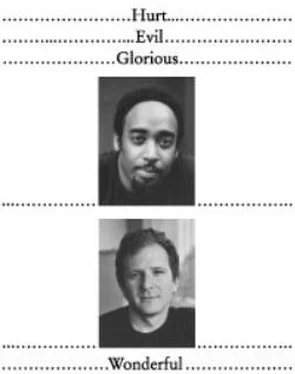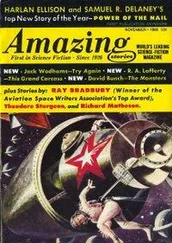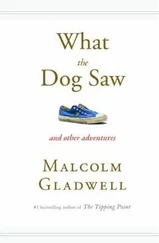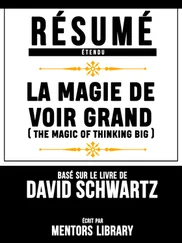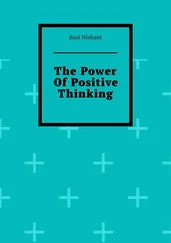Malcolm Gladwell - Blink - The Power of Thinking Without Thinking
Здесь есть возможность читать онлайн «Malcolm Gladwell - Blink - The Power of Thinking Without Thinking» весь текст электронной книги совершенно бесплатно (целиком полную версию без сокращений). В некоторых случаях можно слушать аудио, скачать через торрент в формате fb2 и присутствует краткое содержание. Жанр: Культурология, Психология, на английском языке. Описание произведения, (предисловие) а так же отзывы посетителей доступны на портале библиотеки ЛибКат.
- Название:Blink: The Power of Thinking Without Thinking
- Автор:
- Жанр:
- Год:неизвестен
- ISBN:нет данных
- Рейтинг книги:3 / 5. Голосов: 1
-
Избранное:Добавить в избранное
- Отзывы:
-
Ваша оценка:
- 60
- 1
- 2
- 3
- 4
- 5
Blink: The Power of Thinking Without Thinking: краткое содержание, описание и аннотация
Предлагаем к чтению аннотацию, описание, краткое содержание или предисловие (зависит от того, что написал сам автор книги «Blink: The Power of Thinking Without Thinking»). Если вы не нашли необходимую информацию о книге — напишите в комментариях, мы постараемся отыскать её.
Blink: The Power of Thinking Without Thinking — читать онлайн бесплатно полную книгу (весь текст) целиком
Ниже представлен текст книги, разбитый по страницам. Система сохранения места последней прочитанной страницы, позволяет с удобством читать онлайн бесплатно книгу «Blink: The Power of Thinking Without Thinking», без необходимости каждый раз заново искать на чём Вы остановились. Поставьте закладку, и сможете в любой момент перейти на страницу, на которой закончили чтение.
Интервал:
Закладка:
Next time you meet a doctor, and you sit down in his office and he starts to talk, if you have the sense that he isn’t listening to you, that he’s talking down to you, and that he isn’t treating you with respect, listen to that feeling. You have thin-sliced him and found him wanting.
Thin-slicing is not an exotic gift. It is a central part of what it means to be human. We thin-slice whenever we meet a new person or have to make sense of something quickly or encounter a novel situation. We thin-slice because we have to, and we come to rely on that ability because there are lots of hidden fists out there, lots of situations where careful attention to the details of a very thin slice, even for no more than a second or two, can tell us an awful lot.
It is striking, for instance, how many different professions and disciplines have a word to describe the particular gift of reading deeply into the narrowest slivers of experience. In basketball, the player who can take in and comprehend all that is happening around him or her is said to have “court sense.” In the military, brilliant generals are said to possess “coup d’oeil”—which, translated from the French, means “power of the glance”: the ability to immediately see and make sense of the battlefield. Napoleon had coup d’oeil. So did Patton. The ornithologist David Sibley says that in Cape May, New Jersey, he once spotted a bird in flight from two hundred yards away and knew, instantly, that it was a ruff, a rare sandpiper. He had never seen a ruff in flight before; nor was the moment long enough for him to make a careful identification. But he was able to capture what bird-watchers call the bird’s “giss”—its essence—and that was enough.
“Most of bird identification is based on a sort of subjective impression—the way a bird moves and little instantaneous appearances at different angles and sequences of different appearances, and as it turns its head and as it flies and as it turns around, you see sequences of different shapes and angles,” Sibley says. “All that combines to create a unique impression of a bird that can’t really be taken apart and described in words. When it comes down to being in the field and looking at a bird, you don’t take the time to analyze it and say it shows this, this, and this; therefore it must be this species. It’s more natural and instinctive. After a lot of practice, you look at the bird, and it triggers little switches in your brain. It looks right. You know what it is at a glance.”
The Hollywood producer Brian Grazer, who has produced many of the biggest hit movies of the past twenty years, uses almost exactly the same language to describe the first time he met the actor Tom Hanks. It was in 1983. Hanks was then a virtual unknown. All he had done was the now (justly) forgotten TV show called Bosom Buddies. “He came in and read for the movie Splash, and right there, in the moment, I can tell you just what I saw,” Grazer says. In that first instant, he knew Hanks was special. “We read hundreds of people for that part, and other people were funnier than him. But they weren’t as likable as him. I felt like I could live inside of him. I felt like his problems were problems I could relate to. You know, in order to make somebody laugh, you have to be interesting, and in order to be interesting, you have to do things that are mean. Comedy comes out of anger, and interesting comes out of angry; otherwise there is no conflict. But he was able to be mean and you forgave him, and you have to be able to forgive somebody, because at the end of the day, you still have to be with him, even after he’s dumped the girl or made some choices that you don’t agree with. All of this wasn’t thought out in words at the time. It was an intuitive conclusion that only later I could deconstruct.”
My guess is that many of you have the same impression of Tom Hanks. If I asked you what he was like, you would say that he is decent and trustworthy and down-to-earth and funny. But you don’t know him. You’re not friends with him. You’ve only seen him in the movies, playing a wide range of different characters. Nonetheless, you’ve managed to extract something very meaningful about him from those thin slices of experience, and that impression has a powerful effect on how you experience Tom Hanks’s movies. “Everybody said that they couldn’t see Tom Hanks as an astronaut,” Grazer says of his decision to cast Hanks in the hit movie Apollo 13. “Well, I didn’t know whether Tom Hanks was an astronaut. But I saw this as a movie about a spacecraft in jeopardy. And who does the world want to get back the most? Who does America want to save? Tom Hanks. We don’t want to see him die. We like him too much.”
If we couldn’t thin-slice—if you really had to know someone for months and months to get at their true selves—then Apollo 13 would be robbed of its drama and Splash would not be funny. And if we could not make sense of complicated situations in a flash, basketball would be chaotic, and bird-watchers would be helpless. Not long ago, a group of psychologists reworked the divorce prediction test that I found so overwhelming. They took a number of Gottman’s couples videos and showed them to nonexperts—only this time, they provided the raters with a little help. They gave them a list of emotions to look for. They broke the tapes into thirty-second segments and allowed everyone to look at each segment twice, once to focus on the man and once to focus on the woman. And what happened? This time around, the observers’ ratings predicted with better than 80 percent accuracy which marriages were going to make it. That’s not quite as good as Gottman. But it’s pretty impressive—and that shouldn’t come as a surprise. We’re old hands at thin-slicing.
TWO. The Locked Door: The Secret Life of Snap Decisions
Not long ago, one of the world’s top tennis coaches, a man named Vic Braden, began to notice something strange whenever he watched a tennis match. In tennis, players are given two chances to successfully hit a serve, and if they miss on their second chance, they are said to double-fault, and what Braden realized was that he always knew when a player was about to double-fault. A player would toss the ball up in the air and draw his racket back, and just as he was about to make contact, Braden would blurt out, “Oh, no, double fault,” and sure enough, the ball would go wide or long or it would hit the net. It didn’t seem to matter who was playing, man or woman, whether he was watching the match live or on television, or how well he knew the person serving. “I was calling double faults on girls from Russia I’d never seen before in my life,” Braden says. Nor was Braden simply lucky. Lucky is when you call a coin toss correctly. But double-faulting is rare. In an entire match, a professional tennis player might hit hundreds of serves and double-fault no more than three or four times. One year, at the big professional tennis tournament at Indian Wells, near Braden’s house in Southern California, he decided to keep track and found he correctly predicted sixteen out of seventeen double faults in the matches he watched. “For a while it got so bad that I got scared,” Braden says. “It literally scared me. I was getting twenty out of twenty right, and we’re talking about guys who almost never double-fault.”
Braden is now in his seventies. When he was young, he was a world-class tennis player, and over the past fifty years, he has coached and counseled and known many of the greatest tennis players in the history of the game. He is a small and irrepressible man with the energy of someone half his age, and if you were to talk to people in the tennis world, they’d tell you that Vic Braden knows as much about the nuances and subtleties of the game as any man alive. It isn’t surprising, then, that Vic Braden should be really good at reading a serve in the blink of an eye. It really isn’t any different from the ability of an art expert to look at the Getty kouros and know, instantly, that it’s a fake. Something in the way the tennis players hold themselves, or the way they toss the ball, or the fluidity of their motion triggers something in his unconscious. He instinctively picks up the “giss” of a double fault. He thin-slices some part of the service motion and— blink! —he just knows. But here’s the catch: much to Braden’s frustration, he simply cannot figure out how he knows.
Читать дальшеИнтервал:
Закладка:
Похожие книги на «Blink: The Power of Thinking Without Thinking»
Представляем Вашему вниманию похожие книги на «Blink: The Power of Thinking Without Thinking» списком для выбора. Мы отобрали схожую по названию и смыслу литературу в надежде предоставить читателям больше вариантов отыскать новые, интересные, ещё непрочитанные произведения.
Обсуждение, отзывы о книге «Blink: The Power of Thinking Without Thinking» и просто собственные мнения читателей. Оставьте ваши комментарии, напишите, что Вы думаете о произведении, его смысле или главных героях. Укажите что конкретно понравилось, а что нет, и почему Вы так считаете.
